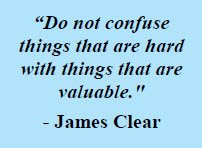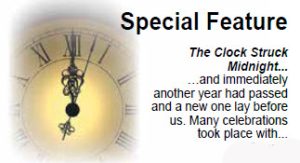 By: Lisa Philippart
By: Lisa Philippart
Values are principles or ideals that guide your behavior, especially in difficult situations or circumstances. Values clarification is a process of reflecting on and deepening your understanding of your personal values, so that your actions and behaviors are more aligned with what you really want and believe in rather than the whims or impulses of the moment. The clearer you are about your values, the more motivation you will have to make good decisions in every area of your life. For example, if you have clarity about honesty as a value in your relationships, you’ll be more motivated to communicate assertively with your spouse or partner and ask for what you want, despite feeling afraid or awkward. If you are clear on creativity as a value, you’ll have more motivation to share novel ideas with your colleagues at work, despite struggling with imposter syndrome or self-doubt.
 Let’s look at some of the problems that come from a lack of values clarity. Very often, the root cause of self-doubt or imposter syndrome is not too much anxiety so much as too little clarity about what really matters to you and why. Clarity creates confidence. While many things can lead to procrastination or avoidance, a powerful but under-appreciated cause is often the lack of clarity around the purpose of the work you’re procrastinating on. Values clarity can lead to internal motivation. When you don’t know what you want (because you’ve never made time to explore and clarify your values) it’s natural to look to other people and unconsciously imitate their values. If you know what’s important to you, you no longer need to seek the approval of others. And finally, the ability to tolerate and stay resilient in the face of difficult emotions depends greatly on having a strong sense of purpose behind your behaviors. Ask yourself, “What do I care about so much that I would willingly do it despite feeling bad?”
Let’s look at some of the problems that come from a lack of values clarity. Very often, the root cause of self-doubt or imposter syndrome is not too much anxiety so much as too little clarity about what really matters to you and why. Clarity creates confidence. While many things can lead to procrastination or avoidance, a powerful but under-appreciated cause is often the lack of clarity around the purpose of the work you’re procrastinating on. Values clarity can lead to internal motivation. When you don’t know what you want (because you’ve never made time to explore and clarify your values) it’s natural to look to other people and unconsciously imitate their values. If you know what’s important to you, you no longer need to seek the approval of others. And finally, the ability to tolerate and stay resilient in the face of difficult emotions depends greatly on having a strong sense of purpose behind your behaviors. Ask yourself, “What do I care about so much that I would willingly do it despite feeling bad?”
 It is important to distinguish between universal values, which are true and valuable for everyone, versus personal values, which have meaning and utility for you but not necessarily others. Personal values are often inherited, but not always. You may hold a personal value primarily because it was something you grew up believing was important to your family, culture, or peer group. That value may or may not continue to be relevant for you. On the other hand, you may claim or discover a personal value that was not present at all in your upbringing. You may also have noticed that personal values can change over time. Often, personal values are relatively context-specific, meaning they’re more or less relevant to you in a certain context or stage of life. Also, clear values can boost motivation. Not only do values help us know how to act or make good decisions, but they also give us energy and drive to actually do what we know is right. The clearer your values are, the more strongly they will encourage you toward the “right” action.
It is important to distinguish between universal values, which are true and valuable for everyone, versus personal values, which have meaning and utility for you but not necessarily others. Personal values are often inherited, but not always. You may hold a personal value primarily because it was something you grew up believing was important to your family, culture, or peer group. That value may or may not continue to be relevant for you. On the other hand, you may claim or discover a personal value that was not present at all in your upbringing. You may also have noticed that personal values can change over time. Often, personal values are relatively context-specific, meaning they’re more or less relevant to you in a certain context or stage of life. Also, clear values can boost motivation. Not only do values help us know how to act or make good decisions, but they also give us energy and drive to actually do what we know is right. The clearer your values are, the more strongly they will encourage you toward the “right” action.

The first step in clarifying your values is to identify and discover them in the first place. While there are many ways to do this, a simple and straightforward approach is to read and reflect on a personal values list. You can do a search online to locate lists of values in numerous formats. Once you have identified your values, how do you prioritize them? Do you value generosity? Do you value self-care? Of course. But what if those values come into conflict? What if being generous means sacrificing your self-care? Values will inevitably come into conflict. The question is, “Are you prepared for that?” Have you reflected on how you will navigate conflicting values? Values clarification involves being able to identify and prioritize what is important to you and then following through with how those values are utilized.
By: Lisa Philippart
Licensed Professional Counselor






